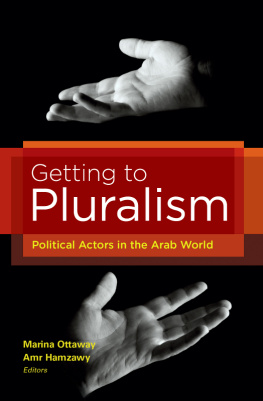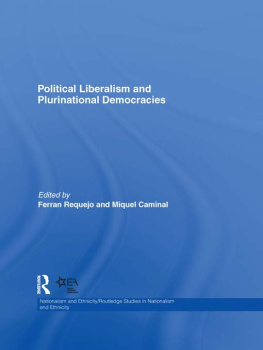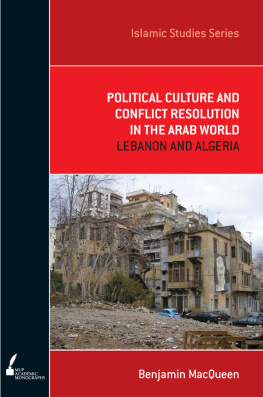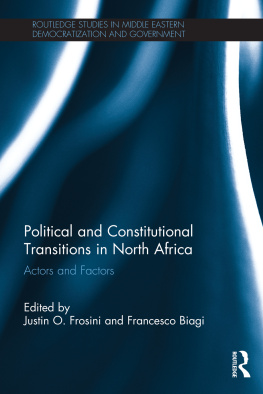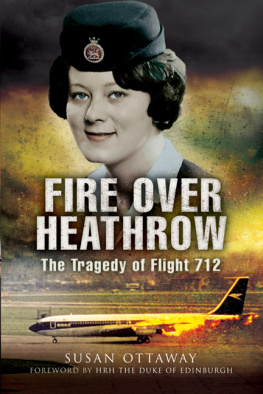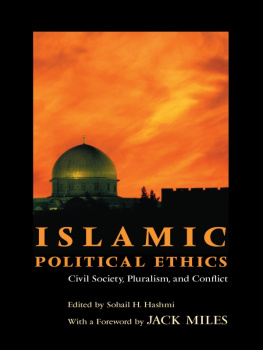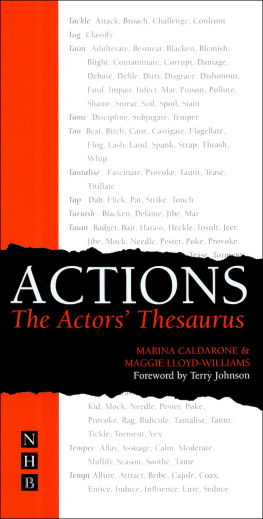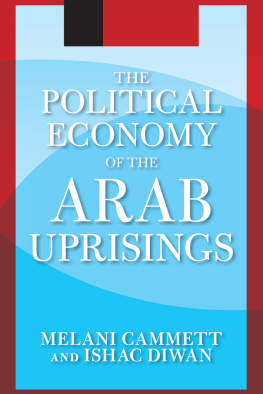
2009 Carnegie Endowment for International Peace. All rights reserved.
No part of this publication may be reproduced or transmitted in any form or by any means without permission in writing from the Carnegie Endowment.
Carnegie Endowment for International Peace
1779 Massachusetts Avenue, N.W., Washington, D.C. 20036
202-483-7600, Fax 202-483-1840
www.CarnegieEndowment.org
The Carnegie Endowment for International Peace normally does not take institutional positions on public policy issues; the views and recommendations presented in this publication do not necessarily represent the views of the Carnegie Endowment, its officers, staff, or trustees.
To order, contact:
Hopkins Fulfillment Service
P.O. Box 50370, Baltimore, MD 21211-4370
1-800-537-5487 or 1-410-516-6956
Fax 1-410-516-6998
Library of Congress Cataloging-in-Publication data
Getting to pluralism : political actors in the Arab world / Marina Ottaway and Amr Hamzawy, editors.
p. cm.
Includes bibliographical references and index.
ISBN 978-0-87003-244-8 (pbk.) ISBN 978-0-87003-245-5 (cloth) ISBN 978-0-87003-275-2 (e-Book) 1. Arab countriesPolitics and government1945 2. Islam and politicsArab countries. 3. Political partiesArab countries. I. Ottaway, Marina. II. Hamzawy, Amr. III. Carnegie Endowment for International Peace. IV. Title.
JQ1850.A91G38 2009
320.9174927dc22
2009017313
Cover design by Naylor Design, Inc.
CONTENTS
Introduction:
Pluralist Politics in Undemocratic Political Systems
Marina Ottaway and Amr Hamzawy
Michele Dunne and Marina Ottaway
Marina Ottaway and Amr Hamzawy
Amr Hamzawy and Marina Ottaway
Conclusion:
Old Actors and New Arenas
Amr Hamzawy and Marina Ottaway
T his volume is the outcome of several years of research, including analysis of documents, research trips involving dozens of conversations, and several structured conferences organized by the Carnegie Endowment for International Peace in the Middle East, in Europe, and in the United States.
In the process, we have accumulated a large debt of gratitude to innumerable individuals who have given generously of their time to answer our questions and share their views with us. We hope that this book will convince them that the time they devoted to helping us was not wasted.
We would also like to express out thanks to our colleague Nathan J. Brown, who partnered with us in the research on Islamist movements before returning to his positions as professor of political science and international affairs and director of the Institute for Middle East Studies at the George Washington University. Nathan remains a valued partner and a member of the greater Carnegie family.
Thomas Carothers, as vice president for studies at the Carnegie Endowment for International Peace, provided support and encouragement for the project all along.
Many Carnegie junior fellows have contributed to the research over the years. Dina Bishara, Mohammed Herzallah, and Adriana Qubaia in Washington and Bassam Moussa in Beirut deserve special thanks for their efforts, as do the members of the publications department, who ensured a smooth and for us painless production process.
Finally, we want to express our gratitude to Saad Mehio and his assistant, Rony Abdelnour, who supervised the translation of the book into Arabic and edited the text. Their efforts have made it possible for us to achieve the goal of simultaneous publication of this volume in both English and Arabic.
Amr Hamzawy
Carnegie Middle East Center
Beirut
Marina Ottaway
Middle East Program, Carnegie Endowment for International Peace
Washington
S ince its founding half a dozen years ago, the Carnegie Endowments Middle East Program has made political change in the Arab world the central focus of its work. As though turning a microscope lens to higher and higher magnification, scholars in Washington, D.C., and at the Carnegie Middle East Center in Beirut, Lebanon, focused first on political change and democracy promotion in historical and broadly comparative terms, examining conditions and trends in the Middle East as compared to the rest of the world. They then analyzed the implications for governments outside the region that wish to support political liberalization. More recently, and in progressively greater detail, this extraordinarily productive team of Arab, American, and European scholars has zeroed in on identifying the key political actors in the region (including those one would expect to be important but arent), analyzing the balance of power among them and describing the prospects for future change.
Uncharted Journey (2005) examined the full range of actors in Arab society, from moderate Islamists and governing regimes, to civil society and womens movements, and then offered recommendations outsiders willing to be involved for the long term might follow to achieve constructive change. The team then tested its conclusions through a country-by-country analysis across the Middle East, covering the Gulf states, the Maghreb, and the heart of the Arab world. The results were published in Beyond the Faade: Political Reform in the Arab World (2008). The authors found cosmetic change, orchestrated from the top but strictly limited to prevent any meaningful redistribution of power away from the ruling regimes. Notwithstanding the high-flown democratic change rhetoric of the middle years of this decade, they found no fundamental political progress in any of the ten countries they examined in depth.
This volume turns back to a focus on the important political actors, which authors Marina Ottaway and Amr Hamzawy believe are only three: ruling establishments, liberal or leftist secular political parties, and moderate Islamist groups (those that have renounced violence in favor of participation in their countrys politics). Right away this list contains a powerful conclusion: that civil society is not now, and is not likely soon to be, a key player in the Arab world. This includes both politically active NGOs and the much ballyhooed Arab street, which, they point out, has not been a major political actor since the end of the colonial period. The key reason for the political stagnation that characterizes the region is not, they believe, Arab cultural exceptionalism or the result of pervasive conflicts that plague the Middle East, but an entrenched imbalance of power among these three that none of them is strong enough, or motivated enough, to break.
A first-rate think tank should produce work whose conclusions are directly useful to policy makers with insights equally valuable to scholars. This volume more than meets that test. If political stalemate is the central issue, then foreign efforts to promote change through development assistance or cultural exchanges or education or the various tools of programs collectively known as democracy assistance are not going to work. And, if Ottaway and Hamzawys conclusions are correct, their work will refocus that of many inside and outside the Arab world in seeking to understand the causes and possible fixes of the pervasive failures of governance there.
Jessica T. Mathews
President, Carnegie Endowment for International Peace


